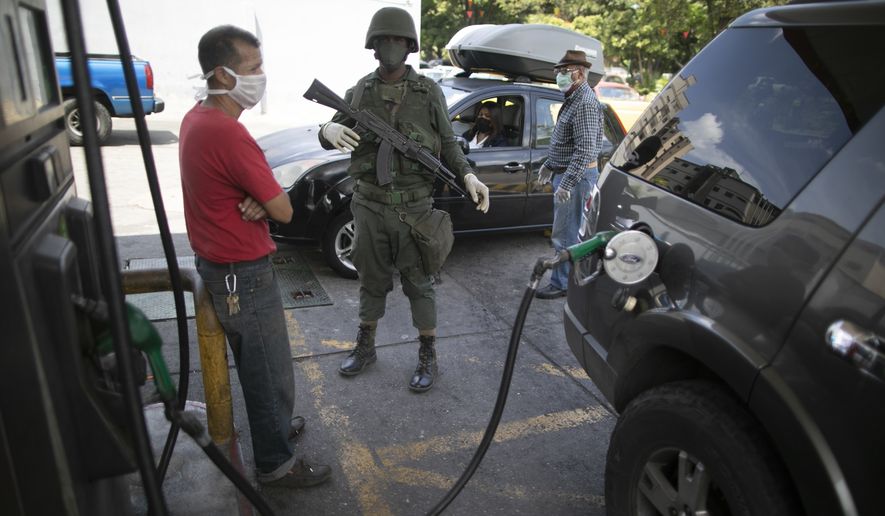U.S. officials say they are pressing forward with a proposal that would require Venezuelan President Nicolas Maduro and opposition leader Juan Guaido to step away from power despite the global upheaval tied to the COVID-19 pandemic.
Despite calls for the Trump administration to ease sanctions against adversaries such as Venezuela and Iran, U.S. special envoy Elliott Abrams insisted Wednesday that the U.S. was pushing ahead with the “Democratic Transition Framework for Venezuela” that Secretary of State Mike Pompeo presented last week.
That plan, which the socialist regime in Caracas has rejected, calls for the rival leaders to step down to make way for a five-member governing council until presidential elections can be held. The Trump administration said it is prepared to lift crippling sanctions, which has hindered the country’s access to U.S. equity markets, if Venezuelan leaders cooperate.
Mr. Abrams told a briefing with the Center for Strategic and International Studies that U.S. officials hope the proposal will trigger discussion among top officials in Mr. Maduro’s inner circle while Venezuela faces massive economic and humanitarian problems along with the threat of a COVID-19 outbreak.
“Our hope is that so many people in Venezuela … inside the government will look at the proposal and maybe say, ’Well, Maduro needs to leave power, but we are treated reasonably,’” Mr. Abrams said.
The U.S. and more than 50 other countries, including many of Venezuela’s Latin American neighbors, say they recognize Mr. Guaido’s claim to be “interim president” after a deeply flawed election in 2018.
“It’s obvious to us that his presidency legally came to an end in 2018 when [Mr. Maduro] stole that election,” Mr. Abrams said. “His departure is clearly a part of Venezuela’s recovery.”
Mr. Maduro has defied predictions that he would be forced out, and Venezuela’s military and security forces have failed to defect to Mr. Guaido’s cause.
Opposition rallies in Venezuela were progressively dwindling before the COVID-19 pandemic, badly straining the country’s already shaky public health care system.
U.S. officials say they expected Mr. Maduro’s rejection of the Pompeo proposal but hoped the prospect of sanctions relief would tempt some of his key supporters.
People in and around the Maduro regime have been making contact, directly and indirectly, to ask the U.S. government for clarification on certain stipulations of the agreement, Mr. Abrams said Wednesday.
“We would have bet $1 million that Maduro would instantly reject the plan but, you know, the framework was really addressed less at Maduro than everyone else. He’s the hole in the doughnut,” Mr. Abrams said.
To put Venezuela on a path to democracy, Mr. Abrams said, the State Department is willing to enter into negotiations with the Maduro regime.
“The point here is not that if you change a word in an American proposal, catastrophe happens,” Mr. Abrams said. “The point is that this is a path forward back to democracy and the lifting of U.S. sanctions.”
Venezuelan officials have reported 150 cases of COVID-19 in the country, but public health analysts say the real number is likely far higher. The coronavirus that originated in Wuhan, China, threatens to further devastate an economy crippled by a reduction in oil production, but Mr. Abrams said there is no sign that illegal drug trafficking has ceased.




Please read our comment policy before commenting.